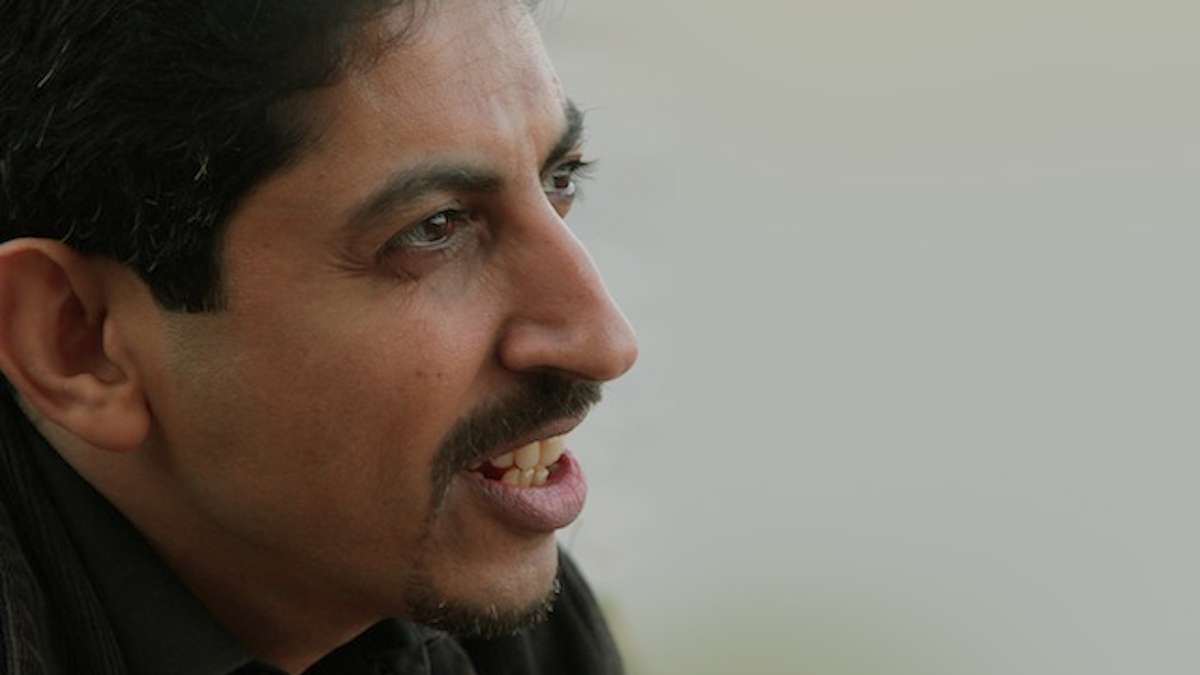AbdulHadi Al-Khawaja, a prominent Danish-Bahraini human rights activist, has been serving his life sentence at Jau Prison since 2011. AbdulHadi, who was 50 years old at the time of his arrest, was tortured and then tried in relation to his human rights activism and criticism of the government. During his imprisonment, he has been facing unfair prison regulations and different forms of reprisal.
AbdulHadi was arrested on 8 April 2011, in light of his participation in the pro-democracy demonstrations which erupted in February of that year. Around 20 police officers and masked officers in civilian clothing attacked Abdulhadi and beat him after breaking into his daughter’s house. They dragged him by his neck and inflicted many injuries, leaving a trail of blood behind. The arresting forces also attacked other members of the family.
After the arrest, Abdulhadi received a hard blow to the face, which broke his jaw. As a result, he was taken to the Bahrain Defence Force (BDF) Hospital where he underwent major jaw surgery for four broken bones. Abdulhadi spent a week at the hospital, during which security personnel threatened him with sexual assault and execution, also making threats toward his wife and daughters. During the entire period, Abdulhadi was handcuffed and blindfolded.
Abdulhadi was then taken to AlQurain Prison, where he was held in solitary confinement for two months. Officers began regularly beating him only eight days after his surgery. He was subjected to severe methods of physical and psychological torture, and when he went on a hunger strike to protest this treatment, he was threatened with a nasogastric tube. He would also be beaten before and after interrogation by masked individuals in civilian clothes. As a result of these conditions, he had begun to lose sensation in part of his face, his surgical wounds were swelling, and he had lost consciousness on at least one occasion.
On 22 June 2011, the military court sentenced AbdulHadi to life imprisonment on charges of “organizing and managing a terrorist organization”, “attempt to overthrow the Government by force and in liaison with a terrorist organization working for a foreign country” and the “collection of money for a terrorist group”. When Abdulhadi had informed the judge that he was tortured and sexually abused, he was beaten, kicked, and left blindfolded in the sun for 45 minutes with his hands raised.
In Jau Prison, Abdulhadi has been denied the proper medical treatment, despite his deteriorating health. In January 2022, officers took him to the hospital for an appointment where he had to sit for 3 hours in the car and then was taken back to prison. After his constant follow-up with the officers, they took him to another appointment without informing him. On the day of the second appointment, they came 15 minutes before its scheduled time and informed AbdulHadi that it was too late for him to go. In addition, the multiple hunger strikes which AbdulHadi has gone on during his imprisonment as a result of his mistreatment have led to severe weight loss which aggravated his health conditions, leading to inflammation in his spine as a result of joint problems. The doctor has informed officers that AbdulHadi requires physiotherapy sessions. However, the officers stopped his physiotherapy sessions abruptly which also worsened his condition. Furthermore, when the doctor ordered blood tests to check for magnesium deficiency after the spasms in his leg were getting worse, officers kept delaying these tests, using COVID as an excuse.
As a result of the torture and medical negligence he has been subjected to, AbdulHadi suffers from extreme back pain because of the beating. He reported that he cannot sleep on his back for too long due to the pain. He was also left with several other health complications including vision impairments, barely being able to see in his right eye. A doctor has warned that these symptoms could lead to blindness.
Furthermore, officers in the prison have been practicing strict restrictions that were meant to isolate the prisoners, which include confiscation of belongings, and restricted access to television, radio and books. Even newspapers were limited to pro-government ones. All these are efforts to further isolate and cut the prisoners of outside information. When prisoners ask about their confiscated belongings, the officers say that they are still under investigation. They were also monitoring phone calls and canceled daily activities. AbdulHadi has complained about the strict and unfair measures and sent a letter to the Ministry of Interior. The ministry however ignored this letter and retaliated by denying him the right to make phone calls for a period of time.
The circumstances of AbdulHadi’s arrest, the severe torture he was subjected to during interrogation, and his deprivation of liberty as a result of his peaceful activism render him arbitrarily detained, as declared by the Working Group on Arbitrary Detention, in violation of the Convention Against Torture and the International Covenant on Civil and Political Rights, which Bahrain is a party to. Moreover, the conditions of his imprisonment constitute a violation of the Standard Minimum Rules for the Treatment of Prisoners upheld by the United Nations. As such, ADHRB calls for the immediate and unconditional release of Abdulhadi Al-Khawaja and other prisoners of conscience. Furthermore, ADHRB urges the authorities to provide adequate and timely medical care and allow Abdulhadi and all prisoners proper contact with their families. Finally, Bahrain should guarantee in all circumstances that human rights defenders in Bahrain are able to carry out their legitimate activities without fear of reprisals and free of all restrictions including judicial harassment.





